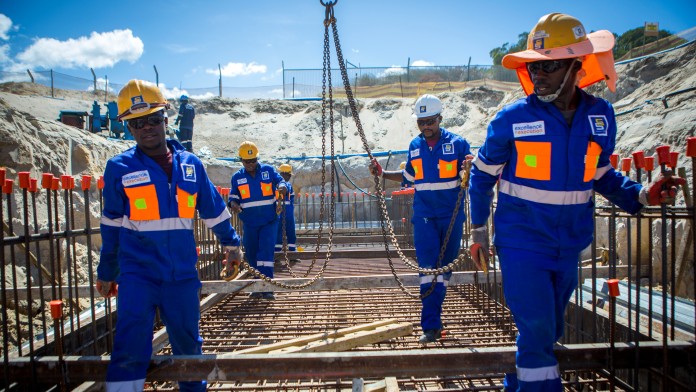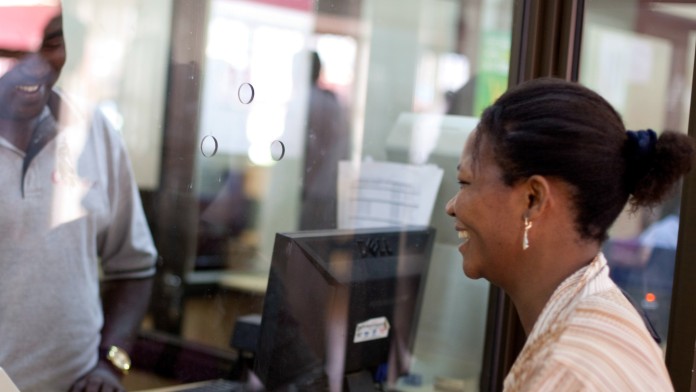Interview with Prof. Dr. Jochen Kluve
Prof. Dr. Jochen Kluve, economist and head of the evaluation department at KfW Development Bank, in an inteview with Friederike Bauer about the value of work and the key factors that contribute to creating more jobs.
Published 7 October 2021, updated 7 October 2023.


Work is a key aspect of our lives. It structures our day, our year, even our life. Even children go to nursery and, later, to school. Education is our path to work. What’s more, we make a living by earning income through work. In many countries, people without work can quickly end up in a free fall. Work also has a social element because we meet and interact with people there. And it has a community aspect because we perform tasks at work that are useful for everyone in society. We could have a lively debate about whether a workday needs to be eight hours. Maybe six would also be enough. But there is no doubt that employment and work make up a significant part of today’s world.
I think that effort and income stand in direct proportion to each other for a majority of workers, at least in industrialised countries. The fact that we have discussions about the minimum wage and how to set an appropriate amount for it is, I think, evidence that we are trying to keep work and income at an honest level, even if the endeavour is imperfect in some respects. The situation is different in developing countries. There often isn’t enough appropriately paid work, or what we might call “decent work”. Decent in the sense that the wage is enough to live on. So it is important that we work towards improving the economic situation in poorer countries while ensuring that labour market conditions provide decent payment at the same time.

Absolutely. That is true across all generations and all borders. The research findings are quite clear here. Work also plays a key role in social and economic status in a society, both here in Europe and in developing countries.
That is the million-dollar question, which is why I am not going to claim to have one single cure-all. Instead, we need a package of measures to create more jobs. Education is a critical element. If we are able to set people on a good path from the start, that will effect tremendous change – for their lives down the line and for societies as a whole. One key factor in the success of a society and a labour market is the individual educational careers available. This is why development cooperation needs to strengthen educational systems.
Education is one component, but it is not the only one. Another element is creating an environment that promotes start-ups, especially small businesses. The private sector creates the majority of jobs worldwide. So we have to create the appropriate framework conditions for companies to emerge quickly, which means as few hurdles as possible and minimal bureaucracy. The third element is connecting job seekers and companies by improving the flow of information. Access to information needs to be improved in many African countries, for example. Graduates there often need two to three years to find their first position. That is far too long.

The dual system is extremely well suited for this. It overcomes the lack of information issue I just spoke about, and vocational schools close the gap between training and the market. There are many variations of this two-pronged educational approach; depending on the context, it can sometimes even take much less time than it does in Germany. They are all usually successful, as the evidence shows. And together with development cooperation, we can generate a substantial impact due to our experiences in Germany.
Agriculture is also a key job driver. The vast majority of people in rural areas find work in this sector. Here, the primary focus is on making agriculture more productive, for example, by using modern cultivation methods, irrigation, new machines and better training. Africa has the most land that is still cultivable. And stimulating modernisation in areas that already have an active agricultural sector today would improve productivity immensely. There is still a lot of potential.
It has had major impacts. The number of jobs has fallen dramatically. According to the International Labour Organisation, the figure dropped by 125 million full-time jobs worldwide in 2021. That is many times more than during the financial crisis and it has hit young people the hardest. Then came a phase of recovery, but the Ukraine war and its consequences for international supply chains already brought the next crisis. This makes the job market extremely volatile and difficult to predict. One thing is clear: Interrupted education and labour market shocks have long-term effects over the course of years, sometimes decades, for affected people who were just entering the labour market, usually in the form of lower wages and fewer promotion opportunities. Literature calls this a “scarring effect”.
KfW can start working on all of these issues with its projects and programmes, which it is doing. However, as a bank, it can offer particular support for the development of financial markets. Studies have shown that entrepreneurs who want to establish start-ups need the right expertise and, at the same time, require access to financial products. Without the latter, economic success usually fails to materialise. Even existing companies can only grow and create jobs if they are able to invest and have the appropriate funds to do so.
Evaluation identifies and assesses the impacts and target achievement of projects and can thus tell us what we did well, what we did less well, and where we really need to improve. In my department, we have three specific tasks. Firstly, we perform what we call ex post evaluations. This means that, a few years after a project ends, we examine the impacts the project had and if they have lasted. That has been our core activity for many years. Secondly, we support projects from the outset by measuring impacts. This means we share our findings during an ongoing programme that can then be changed, if necessary. This is a newer approach. And thirdly, we drive institutional learning and share our empirical results within the development bank in ways that are as targeted and as useful as possible. For example, we share evaluation reports, initiate discussions, but primarily, we use a new interactive app that contains all the evaluation results. We are trying to improve development work with these three instruments, also when it comes to the issue of work.
I would say try to learn as much as possible. It doesn’t need to be in the city or have to be a modern, trendy career. A solid education is enough, but it has to be completed, because learning is a critical aspect for success in life.